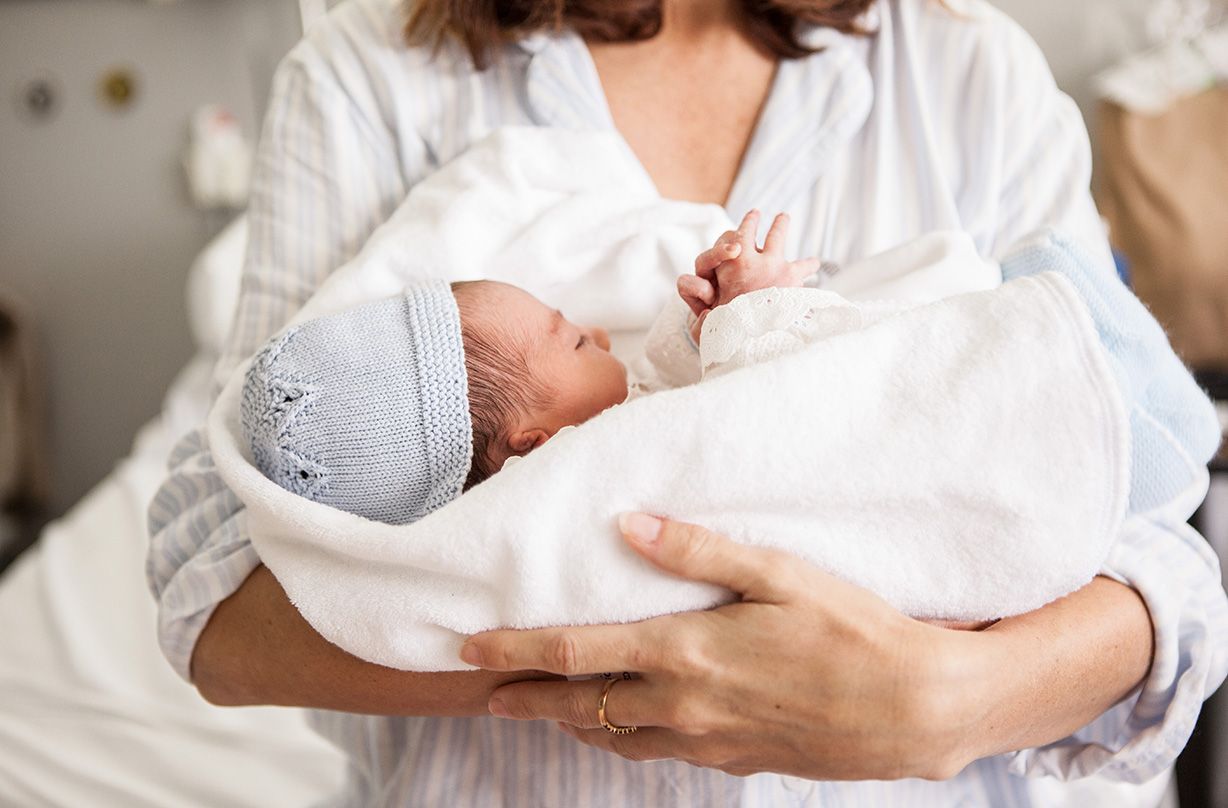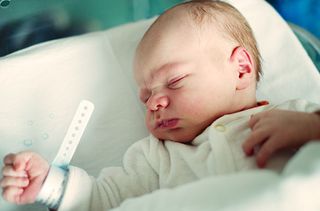Registering a birth: How to register the birth of your baby
Don't forget you legally have to register your baby's birth within 42 days! Here's how...


Legally, birth registration has to be done within six weeks of a baby being born in the UK.
Here, we explain exactly how you go about registering a birth including who can register, and the details you'll need to take with you.
Registering a birth: Everything you need to know
How to register your baby's birth
- The health authority or hospital where your baby was born will notify the registrar of your baby's birth. You then have to register it yourself
- You can register the birth at any Register Office, although it may take a few days longer to process if you go to one in a different district to where your baby was born
- Birth registration in England and Wales is handled by the General Register Office (GRO). Scotland and Northern Ireland have their own General Register Offices. They are based in the local council (or London or Metropolitan borough) office. To find your nearest, go to the General Register website
- Some hospitals have facilities for registering your baby's birth before you leave. So if you've had your baby in hospital, do ask
Who can register the birth?
If you were married when your baby was born or conceived, either you or your partner can register the birth. If you're not married and want the father's details on the register, then you will both have to go and sign the birth register together, or show a declaration of the father's paternity (you can get this form from the registrar).
Most parents register their child's birth, but sometimes neither the mother nor father can attend. In this case, registration can be done by:
- The occupier of the house or hospital where your child was born
- Someone who was present at the birth
- Someone who is responsible for the child
Identification you need when registering a birth

You should take at least one form of the identifications listed below:
- Passport
- Birth certificate
- Deed poll
- Driving license
- Proof of address
- Council Tax bill
- Marriage or civil partnership certificate
You should also take your child's personal child health record or 'red book' as some registrars may ask to see it.
If you're registering a birth on your own you may need to take a paternal test to show the father's identity is correct.
GoodtoKnow Newsletter
Parenting advice, hot topics, best buys and family finance tips delivered straight to your inbox.
Details you need when registering a birth
- The registrar will need your baby's date and place of birth (and the time of birth if you had twins or triplets) as well as his or her sex
- You also need to tell them the forename(s) and surname you have chosen for your baby
- The registrar will also need your details: your name, address, occupation, date and place of birth and maiden name, if you are married. Also, the date of the wedding if you were married to the baby's father at the time of your baby's birth and how many other children you've had. You'll also need to give the father's details if he is to be included on the certificate
- After you and the registrar have read through the document, you both sign it
- It's really important that all the information you give is accurate before it is signed. If mistakes are made, you will have an opportunity to correct them in the future, but it can take time
Your baby's birth certificate
You can have two types of birth certificate that the registrar will give you. The short version that contains only your baby's details is free. The full version also contains all of your details and costs from £8.50 to £11.50. You can buy extra copies at any time and can order certificates by post or online.

Jessica Dady is Food Editor at GoodtoKnow and has over 12 years of experience as a digital editor, specialising in all things food, recipes, and SEO. From the must-buy seasonal food hampers and advent calendars for Christmas to the family-friendly air fryers that’ll make dinner time a breeze, Jessica loves trying and testing various food products to find the best of the best for the busy parents among us. Over the years of working with GoodtoKnow, Jessica has had the privilege of working alongside Future’s Test Kitchen to create exclusive videos - as well as writing, testing, and shooting her own recipes. When she’s not embracing the great outdoors with her family at the weekends, Jessica enjoys baking up a storm in the kitchen with her favourite bakes being chocolate chip cookies, cupcakes, and a tray of gooey chocolate brownies.